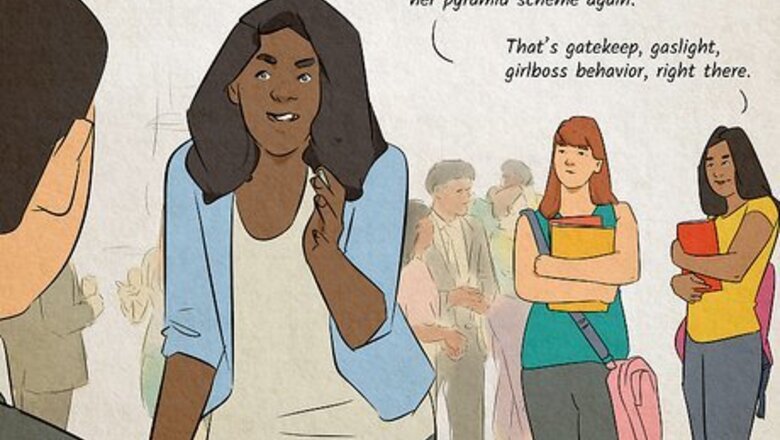
views
- “Gatekeep, gaslight, girlboss,” is a tongue-in-cheek critique of a culture in which women exploit others in order to achieve success or status.
- A “girlboss” is a self-made or successful woman. More recently, the term is used to describe a woman whose success is the product of immoral behavior.
- The phrase “gatekeep, gaslight, girlboss,” is a spin on the motto “live, laugh, love,” and was coined and spread on Tumblr, Twitter, and other social media sites.
“Gatekeep, Gaslight, Girlboss” Meaning
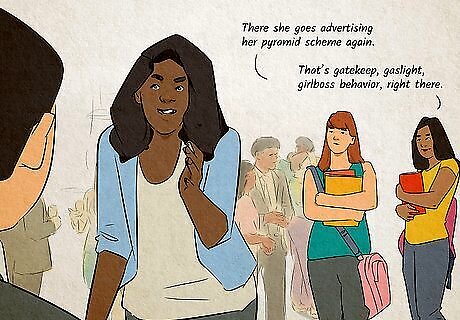
“Gatekeep, gaslight, girlboss” is a critique of exploitative hustle culture. This phrase is used to poke fun at the kind of woman who uses dubious methods to get ahead, in business or in life. It’s a tongue-in-cheek combination of 3 internet buzzwords that encapsulates the problematic aspects of certain women’s mindsets regarding career or social progress, implying that so-called girlbosses gatekeep and gaslight their way to the top. Person 1: “There she goes advertising her pyramid scheme again.” Person 2: “That’s gatekeep, gaslight, girlboss behavior, right there.

“Gatekeep, gaslight, girlboss” is a cheeky spin on “live, laugh, love.” “Live, laugh, love” is a popular motto that appears on merchandise like mugs or interior decor, and is often mocked for being a bit trite or shallow. “Gatekeep, gaslight, girlboss” then, is a sort of parody of the motto and a commentary on girlbosses and their behavior. One popular image features wall art of the words, “Gaslight every moment, gatekeep every day, girlboss beyond words” in cursive script, parodying similar “live, laugh, love” decor.
Defining Gatekeep, Gaslight, and Girlboss

Gatekeep To “gatekeep” means to control who gets to enjoy a certain identity, activity, or access to a community. Usually, it means making another person “prove” that they’re worthy of participating in something. It’s generally done by those who want to feel superior to others, or who get defensive about letting other people enjoy their personal interests. In business settings, it might be used to make coworkers or colleagues feel inferior. Person 1: “Oh, you say you’re an expert in marketing? Prove it.” Person 2: “Dude, cool it with the gatekeeping.”
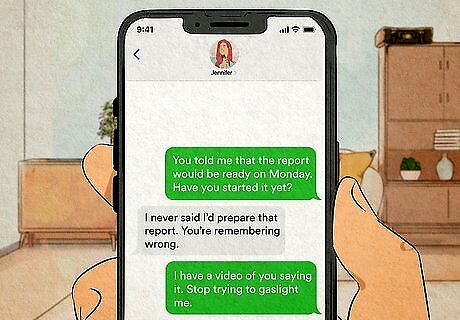
Gaslight Gaslighting is a form of psychological manipulation in which an abuser makes their victim question what they know to be true by lying to them or giving them false information. These days, though, the internet at large has watered down the word to mean just plain lying, or even simply saying something that another person doesn’t like. Gaslighting might be used in professional settings to distract from problematic behavior. Person 1: “I never said I’d prepare that report. You’re remembering wrong.” Person 2: “I have a video of you saying it. Stop trying to gaslight me.”
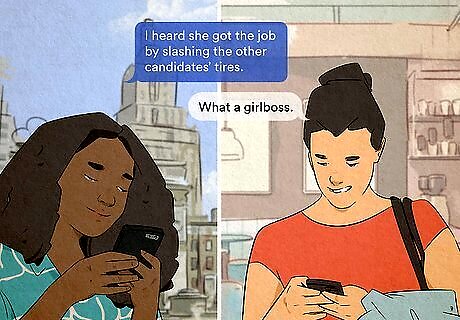
Girlboss A “girlboss” is a self-made woman who’s determined to succeed or assert her place in the food chain, particularly in a business setting. Over time, the term morphed from a sort of empowering label for a successful woman to a derogatory one, as “girlboss” became synonymous with a woman who uses ruthless or immoral tactics to get ahead. Person 1: “I heard she got the job by slashing the other candidates’ tires.” Person 2: “What a girlboss.”
Origin & Spread of “Gatekeep, Gaslight, Girlboss”

“Gatekeep, gaslight, girlboss” first appeared on 2021. The phrase was coined on Tumblr, a blogging site. The first recorded instance was in a post made by user missnumber1111 which read: “today’s agenda: gaslight gatekeep and most importantly girlboss.” A similar post was then made to Twitter on the same day. Both posts garnered thousands of interactions, boosting the phrase’s popularity.

The term morphed into a concise dig at “feminist” hustle culture. After the phrase was passed around as little more than a fun joke, it started to gradually take on a meaning of its own. Soon enough, social media users began to say it as a brief way to express derision for, or to humorously mock, the girlboss lifestyle and mentality. For example, many TikTok users went on to create videos featuring popular and devious female characters, such as Cruella de Vil, accompanied by the caption “Gatekeep, gaslight, girlboss.”
Is being a “girlboss” a bad thing?

Many think that a “girlboss” is just another exploitative boss. While at first the girlboss was touted as being a trailblazer in a world dominated and run by men, over time that opinion shifted. After all, many girlbosses are still just bosses, and are often just as exploitative as the worst kinds of bosses—securing their power and wealth by abusing the people below them. In addition, many feminists believe that the “girlboss” is a flawed form of feminism, since it gives women power by participating in the system that disempowered them in the first place.

Others say that being a “girlboss” celebrates women’s success. Supporters of the term say that you don’t necessarily have to exploit or abuse others in order to be a girlboss. Rather, saying that someone is a “girlboss” is simply a way to acknowledge and praise a woman who’s made a name for herself or achieved her own version of success. For example, if a woman performs well in a job interview or gets into a prestigious university, their supporters might praise them as a “girlboss.”
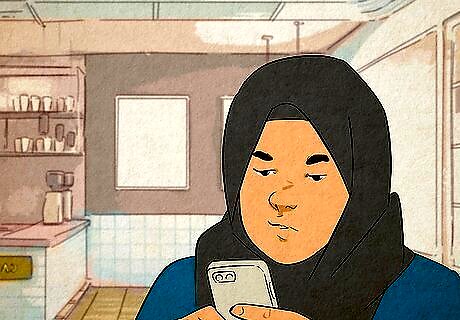
Some think that using the term “girlboss” ironically is misogynist. The term’s connotations have evolved from generally positive to generally negative or even ironic, the latter being used to criticize women who’ve gained power at the expense of others (for example: “Yeah, sure, Cruella de Vil was such a girlboss, right?”). Some say that, when used this way, “girlboss” demeans women for finding success, even when their male counterparts aren’t held to the same standard, and so, actually, the term itself might be a bit misogynist. People in this camp also say that expecting women to excel while also being kind, nurturing, or palatable is itself an old-fashioned form of misogyny.
Related Terms

Manipulate, mansplain, malewife This phrase was coined as a masculine riff on “gatekeep, gaslight, girlboss,” and is used similarly—to joke about or criticize male figures that pursue status through exploitation. “Mansplaining” is when a man condescendingly explains something to a woman, even (and especially) when she already understands it. A “malewife” is a man who takes the role of a traditional housewife. Example: “You crashed your car into my mailbox, don’t deny it. There’s no manipulate, mansplain, malewifing your way out of this one.”



















Comments
0 comment